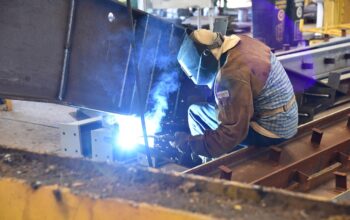Engineering Trends To Watch In 2025
As we step into 2025, the engineering landscape is transforming rapidly. From AI integration to sustainable climate solutions, here are some of the most impactful trends in engineering today.
1. AI Engineering Goes Mainstream
AI is no longer just a buzzword; it’s becoming an integral part of engineering. The rise of AI engineers is creating new opportunities and challenges in the field. With AI engineers, companies can innovate faster and provide solutions that were previously unimaginable. For instance, AI can help in designing smarter buildings and optimizing manufacturing processes. This shift towards AI engineering is not just about technology; it’s about creating a new culture of innovation and problem-solving in engineering.
2. The Growing Demand for Engineers
The engineering job market is booming, with a significant increase in hiring expected over the next decade. This growth is driven by technological advancements and shifting employer needs. As the industry evolves, engineers are in high demand across various sectors, from renewable energy to advanced manufacturing. This optimism is reflected in reports from organizations like the American Council of Engineering Companies, which forecasts a surge in hiring for engineering positions.
3. Climate Action and Engineering
Climate change is pushing the engineering community toward sustainable solutions. Engineers are now at the forefront of developing technologies that reduce carbon footprints and promote eco-friendly practices. This includes innovations in renewable energy systems, sustainable construction materials, and green infrastructure. The legal push to criminalize ecocide is also driving engineers to focus more on environmental sustainability.
4. Quantum Computing in Engineering
Quantum computing is revolutionizing the way we approach complex problems in engineering. By leveraging quantum mechanics, engineers can simulate molecular structures more accurately, leading to breakthroughs in fields like drug discovery and materials science. Although still in its early stages, quantum computing holds immense potential for solving challenges that traditional computers cannot handle.
5. Emerging Specializations
As technology advances, new engineering specializations are emerging. For example, civil engineers are now working on high-speed rail projects and water quality improvement initiatives. These specializations not only require technical expertise but also a deep understanding of social and environmental impacts. This diversification is making engineering more dynamic and relevant to modern societal needs.
Key Takeaways
- AI Integration: AI is transforming engineering by enhancing productivity and innovation.
- Job Market Growth: The engineering job market is expanding rapidly due to technological shifts.
- Climate Focus: Engineers are crucial in developing sustainable technologies and practices.
- Quantum Leap: Quantum computing is poised to solve complex engineering problems.
- New Specializations: Emerging fields like civil engineering in high-speed rail and water quality are gaining prominence.
These trends highlight the exciting and transformative journey engineering is on in 2025.
References:
- https://www.simplilearn.com/top-technology-trends-and-jobs-article
- https://www.ssipeople.com/how-has-the-engineering-job-market-changed-in-2025/
- https://worldoil.com/news/2025/6/12/urtec-2025-molding-engineers-and-young-professionals-for-the-evolving-oil-and-gas-landscape/
- https://www.asce.org/publications-and-news/civil-engineering-source/article/2025/06/11/asces-top-10-best-places-to-be-a-civil-engineer-in-2025
- https://www.latent.space/p/aiewf-2025-keynotes
- https://upcea.edu/resources/
- https://digitaldefynd.com/IQ/future-trends-after-ai/
- https://www.energycentral.com/energy-biz/post/trends-in-climate-legal-action-CiOJokTCCCOB0uS



